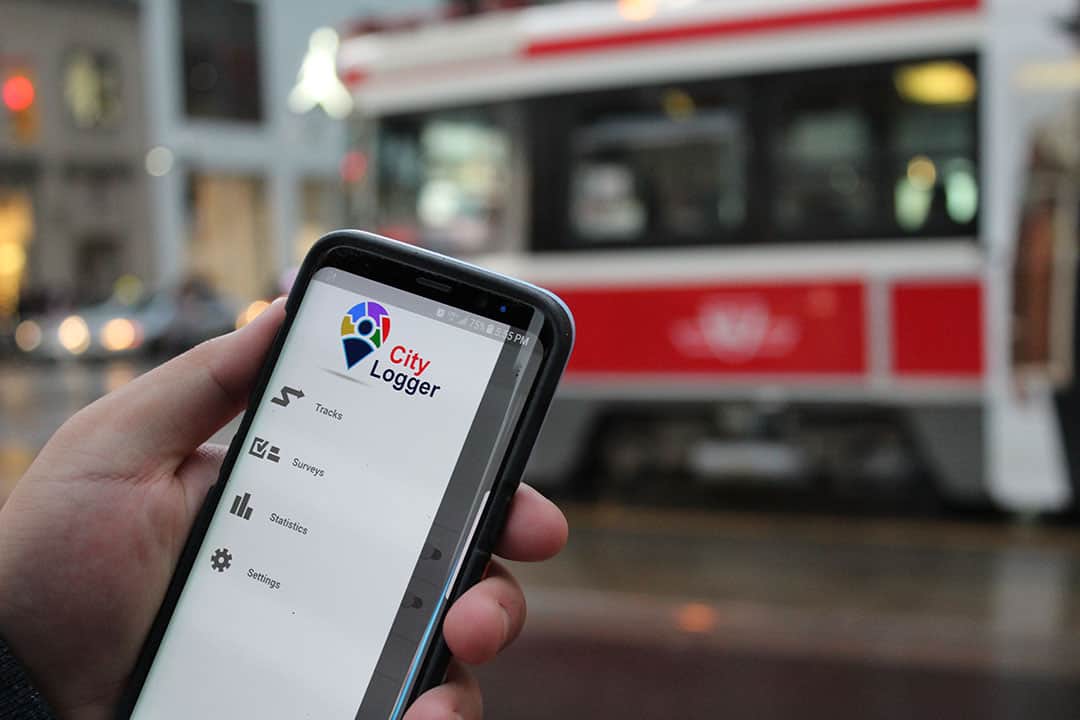Whether your commute is a short subway trip or a lengthy bus ride, you can use the City Logger app to monitor your data while aiding provincial governments in transit funding and planning decisions.
Developed by a team of U of T researchers, City Logger runs in the background of your phone and will collect location and time data to aid researchers in their understanding of transit user behaviour.
The app is part of a larger research project called the Transportation Tomorrow Survey (TTS), which has been conducted every five years since 1986 to collect household travel data.
Chris Harding, a PhD candidate in the Department of Civil Engineering at U of T, has been one of the driving forces behind this project. According to Harding, the TTS had collected data from 150,000 households by landline surveying during 2011 and 2016. However, this method has been costly and time-consuming.
“We needed to explore new ways to collect data in a region, and smartphones were one of these things that we were looking at,” said Harding.
Harding notes that there are some limitations when it comes to surveying through an application, including technical limitations like GPS location disruptions, and physical limitations like the way people interact with the application. However, this method has proven to be more advantageous than conventional forms of surveying in the past. Harding said that City Logger enabled his team to reach a younger audience range and capture transit trips that go unreported in most conventional surveys.
“When you have stand-alone apps, you would find that the trips go underreported anywhere from 25 to 40% of the actual trips that [commuters] make and so the app… allows us to not have that self-reporting [error],” said Harding.
City Logger is currently available for download on both Android and iOS devices.


